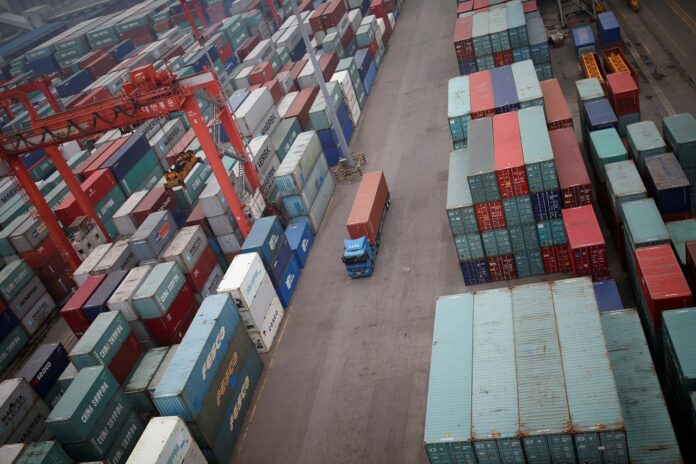The Nigerian-American Chamber of Commerce (NACC) and the Nigeria Export Processing Zones Authority (NEPZA) say investments in critical infrastructure in the non-oil sector will spur economic growth and development in Nigeria.
Their officials spoke at the NACC March Breakfast Meeting with the theme: “Nigeria Non-oil Exports: Situation Report and Way Forward” on Thursday in Lagos.
Prof Adesoji Adesugba, Managing Director, NEPZA, noted that non-oil exports dominated Nigeria’s export trade and formed the bedrock of her economy in pre and immediate post-independence era.
According to him, during the 50s and 60s when primary commodities like cocoa, cotton, groundnut and palm-oil occupied the pride of place in the country’s economic output structure, the economy was buoyant.
He said that economic and social infrastructure, including roads, power, education, health, among others functioned properly.
Adesugba, however, stated that a major structural transformation had put crude oil and marketing as the most significant feature of Nigeria’s development programme.
This over dependence on oil, Adesugba said, had led to downward pressure, considering the instability associated with oil prices globally.
He posited that the current scenario was not in the best interest of the Nigerian economy, particularly against the backdrop of dwindling value of the Naira, commodity prices and aftermath of the COVID-19 pandemic.
The managing director said that in spite of challenges affecting the non-oil sector, it had made appreciable prospects in terms of its contribution to the growth and development of the nation’s economy over the past years.
He stated that NEPZA Free Trade Zones/Special Economic Zones provided the panacea to reinvigorate the sector in the face of dwindling and unstable revenue from oil, rising demand for foreign exchange, insecurity, and external debt.
“There are currently 43 Free zones in various stages of development across the country.
“In line with the Nigeria Industrial Revolution Plan (NIRP), the Authority is looking towards using Industrial Zones to attract requisite investment that would help develop the Non-oil exports sector in the areas the country enjoys significant comparative and competitive advantage,” he said.
In her remarks, Dame Adebola Williams, President, NACC, noted that the theme of the forum was important given the calls over the years by the private sector for a more diversified economy.
Williams noted that the country’s over-dependence on crude oil exports was not sustainable given the steady global campaign for green/renewable energy.
She added that the advent of electric cars was here and there was no better time to look very critically, once again, at the country’s non-oil exports with a goal of higher foreign exchange earnings.
“Nigeria’s primary commodities must, therefore, be reviewed in this respect, being mainly agriculture and mining based, with a determination to add real value to them as much as possible before exports.
“This breakfast meeting is therefore an opportunity for current and intended players in the Nigerian export market, for credible information capable of assisting practitioners in this key sector,” she said.




